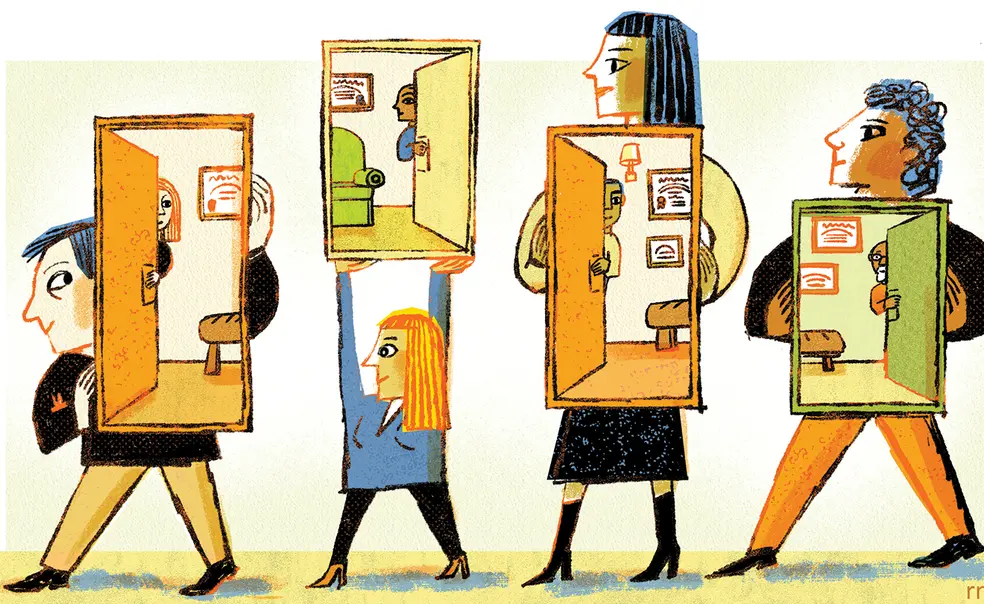Students Push University to Cut Mental Health Care Fees
Editor’s note: If you or someone you know may have suicidal thoughts, you can call the 988 Suicide and Crisis Lifeline or chat online at 988lifeline.org.
Princeton University Health Services reduced the student copay for in-network mental health visits from $20 to $10 for those who participate in the Student Health Plan. In addition, the University will fully cover initial visits to therapists. The new measures, which took effect in August, are part of a larger effort to address Princeton’s need for mental health care, which remains painfully prevalent in the view of many students, including those who advocated for the updates.
The Graduate Student Government (GSG) and the Undergraduate Student Government (USG) partnered to push for these changes. “It started out quite serendipitously,” said Chris Catalano, the vice president of GSG. He pointed to a meeting with Calvin Chin, the director of Counseling and Psychological Services, as a turning point for the initiative because both student groups brought up a desire to reduce copays.
“I think it speaks to the enormity of the issue that both GSG and USG happened to raise the same issue at the same meeting, without having previously spoken about this issue,” said Meera Kochhar ’25, chair of the USG’s Mental Health Committee.
The University is unable to provide long-term therapy for students and instead facilitates introductions to professionals within the health plan’s Exclusive Provider Network. This service allows students to meet with multiple mental health care providers and find the right fit for them without having to pay additional fees.
Princeton’s expansion of accessibility to mental health care comes within the tragic heaviness of an increase in student and staff suicides. Since 2021, six undergraduates have died after struggling with mental health, and a University staff member died by suicide on campus in 2022.
“While Princeton has a lot of resources, there is a need for a cultural change in how students view mental health. A lot of students view mental health as a buzzword,” Kochhar said.
The two student governments worked for over a year to advocate for changes to the student health plan. Their work included collecting impact statements from the student body, modeling various policies (such as a $5 copay versus a $10 copay), and conducting focus groups. In particular, the GSG and USG compared the Princeton plan with those at peer institutions. Schools such as Brown and Yale offer sessions with no copays, while MIT and Caltech offer at least 25 free visits and cheaper copays.
A group of students presented the final version of the policy to Vice President W. Rochelle Calhoun and other administrators in May, and the University announced the change on July 12.
During orientation in August, Calhoun spoke to the Residential College Advisers (RCAs) and Community Living Advisers (CLAs) about the new policy. Calhoun stressed that the policy change was driven by students, and that their effort was worth applauding. RCAs and CLAs work as primary points of contact with the student body and can work as ambassadors to inform their ’zees (advisees) about the new policy and its accessibility.
Students have said that the cost reduction is helping them afford therapy at school. “This change will save me over $1,000 per year as I see a therapist twice a week and psychiatrist once every four weeks for medically necessary treatment,” said a Ph.D. student who requested anonymity given the sensitive nature of the topic. “I’m incredibly grateful to Chris and everyone in GSG who made this change possible, but I think there’s still significant room for improvement in making mental health treatment truly affordable and accessible.”
Catalano noted that the change will affect many students at Princeton. “More than 50% of students seek mental health services on campus,” he said. “This will hopefully reduce the barrier to entry by cutting that in half and allow more students to receive care.”
The benefits of therapy are long term, he added: “The skills you gain, things you work through, emotional processing, all that will benefit the students and the people on campus for the rest of their lives. I think the impact of that is incalculable.”












No responses yet